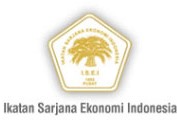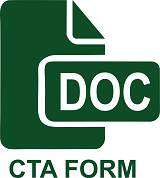Analysis of Mixed Economic System in Islamic Perspective
(1) Muhammadiyah University of Surakarta
(2) Diponegoro University of Semarang
Abstract
This study try to analyze a mixed economic system, based on Islamic rules. It is regarded as an ideal system in economic because goverment economic plays role in the system. Nowdays, many concepts of mixed economic system come up but it can not be said as the ideal ones as economic actors’ greediness interferes the systems. The method for analizing data is placing the goverment and private sectors appropriately at a curve of procuction possibility of private-public goods. There are some findings. The first result shows that the goverment does not need to condunct market operation and price interference with the assumption of the poor can meet their basic needs. Then, Islam views that mixed economic system is the ideal one if goverment and private sector play roles in the system. The role of goverment is to provide goods for public and controll private sectors. Further, the private sectors provide goods for the needs of private. Finally, the finding also shows that there is greediness, appears at the goverment and private system.
Keywords
Full Text:
PDFReferences
Abbas, A. 2008. Menangkap Nilai-nilai Demokrasi Ekonomi: Menurut Bung Hatta. Jurnal Equilibrium 5(3). 305-332.
Al 'Assal, A.M. dan Karim, F.A.A. 1980. An-Nizhaamul Iqthisaadi fil Islam Mabaadi'uhu wahdaafuhu, terj. Abu Ahmadi dan Anshari Umar, Sistem E.konomi Islam Prinsip-prinsip dan Tujuannya. Surabaya: Bina Ilmu.
Al-Qudsy, S.H.S.I. dan Rahman, A.A. 2011. Effective Governance in the Era of Caliphate `Umar Ibn Al-Khattab (634-644). European Journal of Social Sciences. 18(4). 612 – 624.
Basyir, A.A. 1987. Garis Besar Sistem Ekonomi Islam. Jogyakarta. BPFE.
Bogolib, Tetiana Maksimovna. 2013. The Public Sector of Mixed Economy in the Modern World. Quarterly Journal of Economics and Economic Policy Vol 8 Issue 1, 2013
Chapra, U.M. 2000. Islam and The Economic Challenge, terj Ikhwan Abidin Basri, Islam dan Tantangan Ekonomi. Jakarta: Gema Insani Pers.
Hatta, M. 1963. Persoalan Ekonomi Sosialis Indonesia. Jakarta: Djambatan.
Islahi, A.A. 1992. Ibn Taimiyyah’s Concept of Market Mechanism. In Reading in Microeconomics: Islamic Perspectives edited by Sayyid Tahir, Aidit Ghazali and Syed Omar Syed Agil. Kuala Lumpur: Longman Malaysia.
Kayuni, H.M. 2011. Malawi’s Economic and Development Policy Choices from 1964 to 1980: An Epitome of ‘Pragmatic Unilateral Capitalism’. Nordic Journal of African Studies 20(2). 112–131.
Khan, M.A. 2011. The Role of Islamic State in Consumer Protection. Pakistan Journal of Islamic Research 8. 33-44.
Mannan, M.A. 1993. Islamic Economics: Theory and Practice, terj. Nastangin, Ekonomi Islam: Teori dan Praktek. Jogyakarta: PT Dana Bhakti Wakaf.
Qardhawi, Y. 1995. Musykilah al Fakr wakaifa 'Aalajaha Al Islam, terj. Syafril Halim, Kiat Islam Mengentaskan Kemiskinan. Jakarta: Gema Insani Pers.
Prishardoyo, Bambang, Karsinah. 2010. Analisis Faktor-Faktor Yang Mempengaruhi Volume Transaksi Pasar Uang Antar Bank di Indonesia Tahun 1983–2007. JEJAK: Jurnal Ekonomi Dan Kebijakan, 3(2)
Riyardi, A. 2013. Promoting A Market Competition: An Islamic Perspective. Prosiding Seminar dan Call for Paper Program Studi Manajemen dan Magister Manajemen Fakultas Ekonomi dan Bisnis UMS.
Santosa, P.B. 2014. Mengalami Indonesia. Jogyakarta: Bimotry.
Seff, S.M. 2010. Demokrasi dalam Hukum Ekonomi Syari'ah. Risalah Hukum 6(2). 83-95.
Tisdell, C. 2008. Thirty Years of Economic Reform and Openness in China: Retrospect and Prospect. The University of Queensland Working Paper 51.
Velinga, M. 2009. State, Market and Civil Society: Latin American Development in Comparative Perspective. Investigaciones Geográficas 70. 93-105.
Wikipedia, 2015. [Diakses tanggal 20 Maret 2015].
Refbacks
- There are currently no refbacks.

This work is licensed under a Creative Commons Attribution 4.0 International License.






